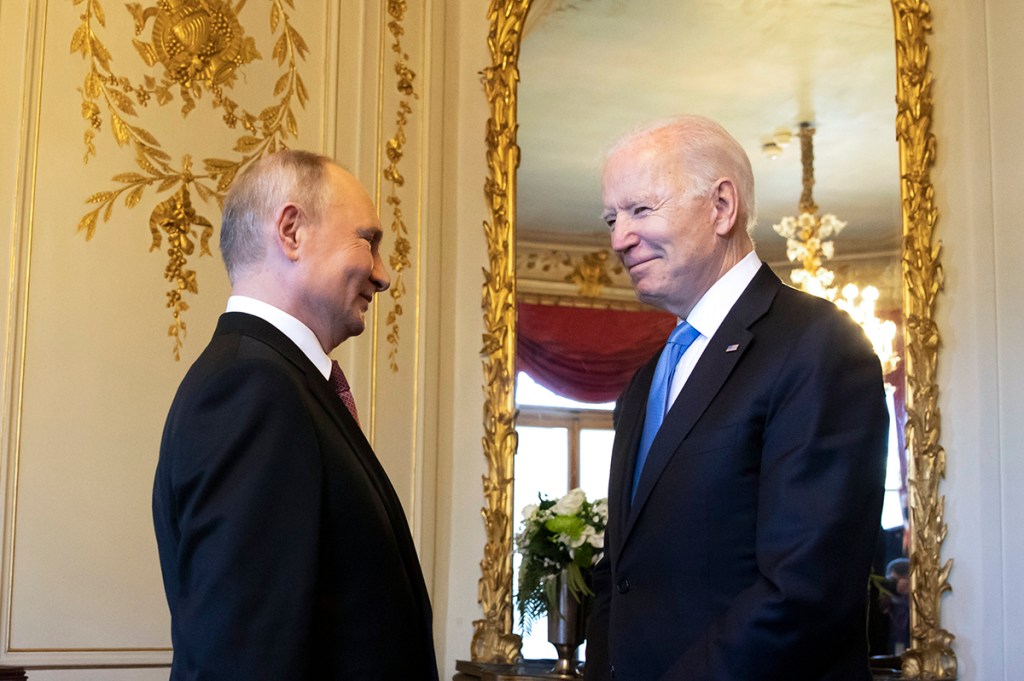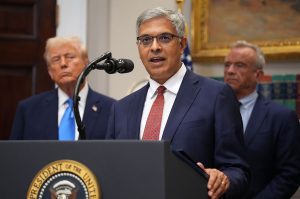In May 2017, TIME magazine published a cover showing the White House being infected and taken over by Russian onion domes. The image meant to suggest that Donald Trump was a sleeper agent on behalf of Vladimir Putin. This sort of thinking was the driving force behind four years of media hysterics and seemingly endless cable news segments portraying Trump as a Russian puppet.
With Joe Biden, naturally, the media has adopted a distinctly different tone — especially when it comes to the President’s relations with Russia: this despite six months of Team Biden’s complacency towards Russia, bad actors and even Putin himself.
Gone are the accusations of ransom and pee tapes, or treachery — even as Russia makes aggressive moves on the world stage and towards the United States. There is absolutely no talk of treason, or dark muttering as to what Putin might hold over Biden, even as the new administration refuses to engage with or retaliate against Putin. Rachel Maddow has moved on. So has most of the CNN expert Russian team.
Yet here is the troubling timeline of events. On May 7, the Colonial Pipeline was forced to shut down after a Russian-linked hacker group named DarkSide accessed its internal network and demanded a $4.4 million ransom payment. The shutdown of this pipeline led to massive fuel shortages on the East Coast of the United States and gas lines not seen since the Carter administration.
The company paid the ransom, apparently acting in cooperation with the Biden administration, which refused to answer direct questions on its role. The payment was reportedly made in cryptocurrency and a little over half was recovered by US intelligence officials. That was the end of that. We moved on.
On May 20, the Biden administration and his State Department announced it was lifting sanctions on the Nord Stream II pipeline, as well as chief executive Matthias Warnig, a noted ally of Vladimir Putin. The Nord Stream pipeline is a project that will deliver energy from Russia to the EU. Was this in anyway connected with any negotiations regarding ransomware attacks? We don’t know, because the American media is suddenly disinterested in such events.
Then, on June 3, another hacker group based out of Russia, REvil, attacked the US meat supplier JBS, which shut down its operations in the United States, Canada and Australia. JBS did not disclose if it too paid a ransom for the attacks and the White House was not questioned on the matter. On June 16, Biden met Vladimir Putin after his first G7 summit. The media mostly portrayed this meeting as tough-cool-guy Biden taking on Putin, a US president finally standing up to the threat of Russia, a threat they all but laughed off during the 2012 election when Mitt Romney had raised his concerns. Nobody asked Biden about when he dismissed Russia anxiety as a ‘cold war mentality’.
Biden spoke to the press briefly after the meeting and said he presented Putin with a list of 16 critical infrastructure targets in the United States that were to be off limits to Russian hackers. Thanks, Joe.
Two days after this meeting, the United States halted and froze a military aid package to Ukraine that included defensive weapons. That package was worth upwards of $100 million — as Russia amassed troops on Ukraine’s border.
The move looks a lot like an accommodation to Putin’s demand that the United States remain out of the growing conflict. But the US media rang no alarm bells. Almost nobody suggested that Biden had caved to Putin, or that Putin must have some kompromat, some secret embarrassing information over the new Commander-in-Chief.
Then this week, on July 2, REvil once again took credit for a massive cyberattack against Synnex, a third-party provider used by the Republican National Committee. Meanwhile, the single largest global ransomware attack on record occurred — for which again a criminal network believed to be operating out of Russia took credit.
Other than a few scarce reports in the New York Times, these attacks barely registered in the American media. Recall again the feverish levels of Russia paranoia in the Trump years. Now consider that Putin and his criminal allies are clearly testing the new president, and we are only six months in. Biden is refusing to act as Russian attacks become more ambitious and more aggressive. American journalists are looking the other way.
So the question must be asked, the question the media hyperventilated for four years over a previous president and one they refuse to address now, to spare a new president they are largely attempting to protect — what does Vladimir Putin have on Joe Biden? What is Joe Biden hiding?

























